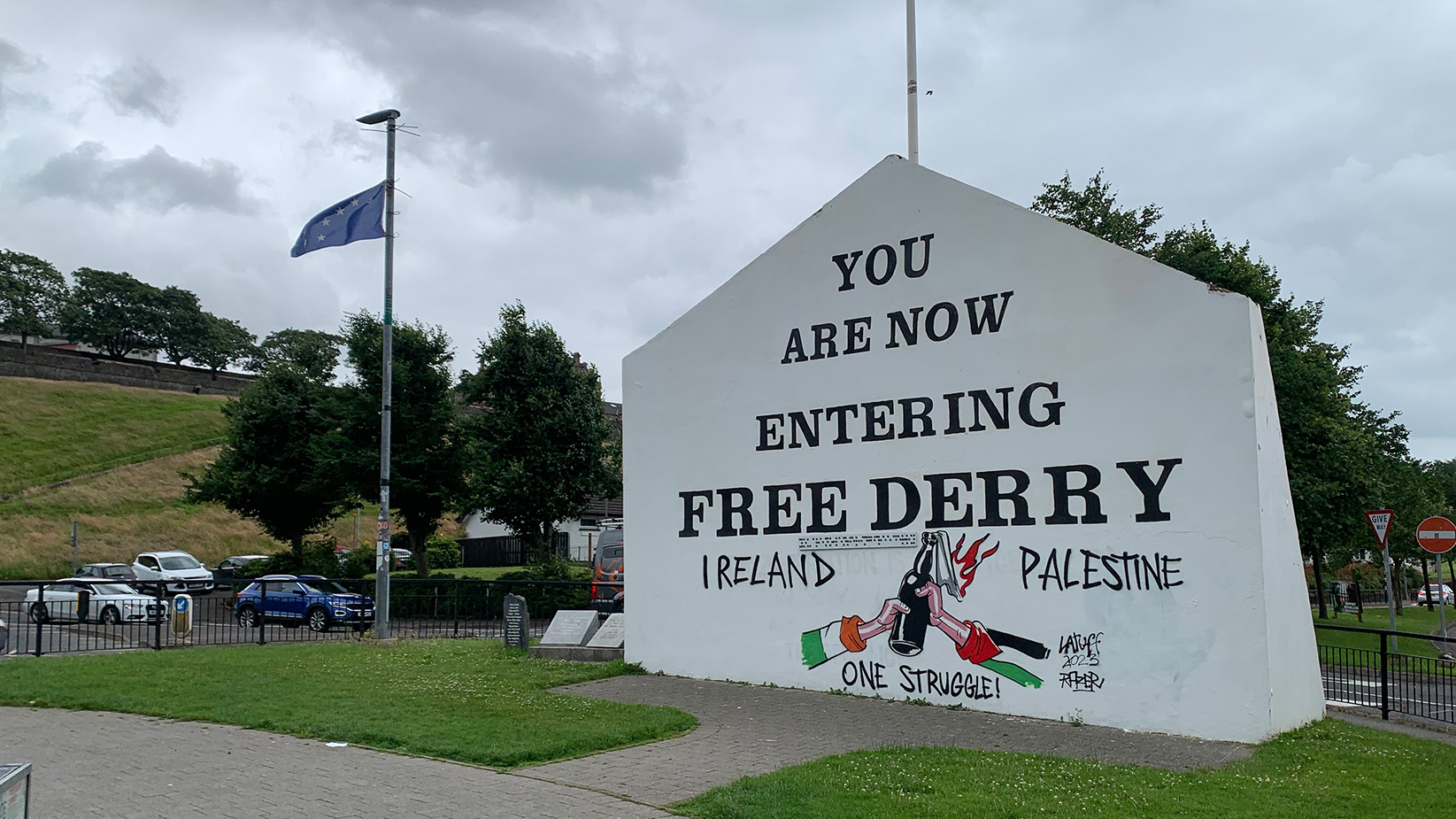Following the Brexit referendum in 2016 there were real fears in Ireland of a return to a hard border between the North and South, something that dissident republicans warned would lead to violence. Now seven years on with a trade border instead placed in the Irish Sea, what are people’s hopes and fears along the Irish border for the future?
Darragh Patterson is a young man from Portaferry, a largely catholic town about an hour southeast of Belfast. He now lives in the republic in county Donegal but regularly travels back and forth over the border to visit his family.
His grandparents live in Derry City, Londonderry if you’re a unionist. At Sunday lunch the conversation will often revert to his grandfather Raymond’s stories of the Troubles. This was the period of deadly sectarian violence that engulfed Northern Ireland. It resulted in over three thousand deaths and almost 30 years of terror and misery.
For Darragh, the only noticeable difference as he travels across the border is that the road signs change from miles to kilometres. However, Raymond, remembers a different time of heavily armed military checkpoints, the rumble of army helicopters, and the constant fear of being caught in the crossfire.
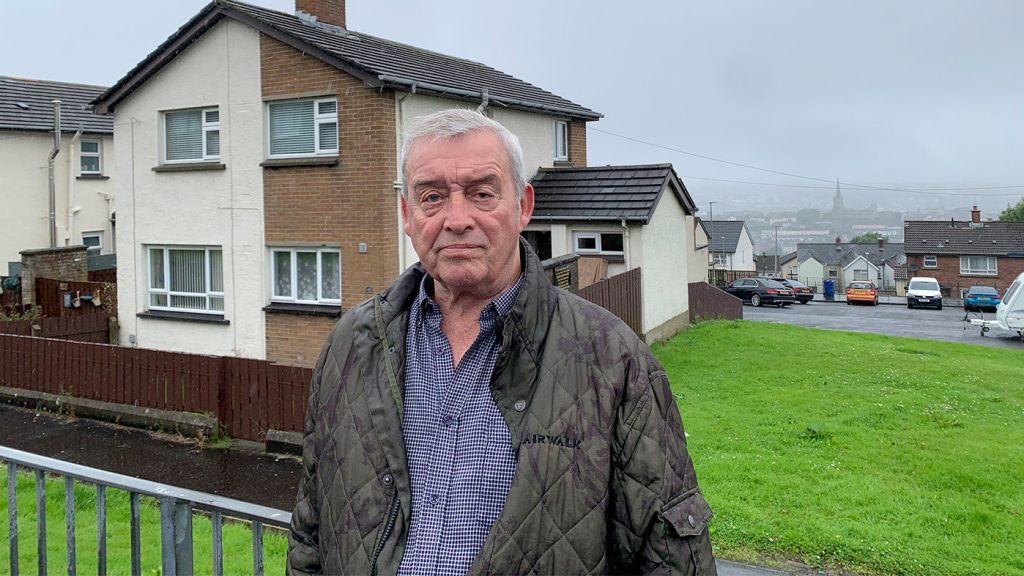
This Sunday in particular, Raymond tells Darragh about what he saw on Bloody Sunday in 1972, the day that sparked the conflict. Thirteen unarmed catholic civilians were shot dead by British soldiers as they marched through the streets of Derry city campaigning for civil rights. That peaceful campaign was all but ended that day, instead replaced by the violent conflict.
“I remember the bullets zinging over our heads and the soldiers up on the city walls just taking pot-shots at the marchers, it was like shooting fish in a barrel,” said Raymond.
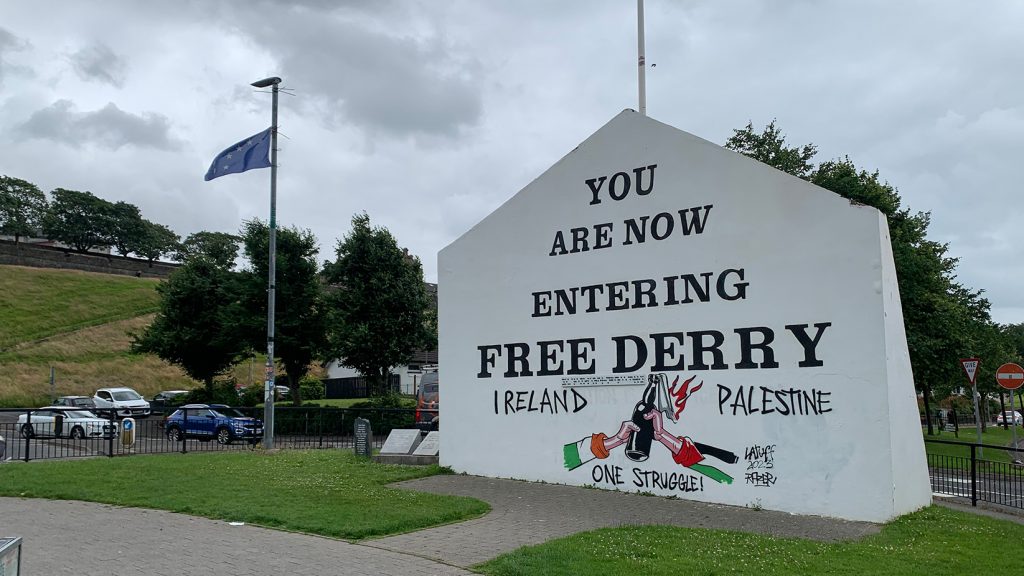
Today the era of relative peace the Derry of Raymond’s youth seems a different world entirely. The bomb explosions and rifle fire no longer ring out around the city. After dinner, he heads down to the shop to do the lotto. Just outside is a memorial to five people who were gunned down in the pub next door during a sectarian attack.
“You’d almost take it for granted how times have changed since then,” he said. “Five people were shot dead right there but here I am just heading in to do the lotto.”
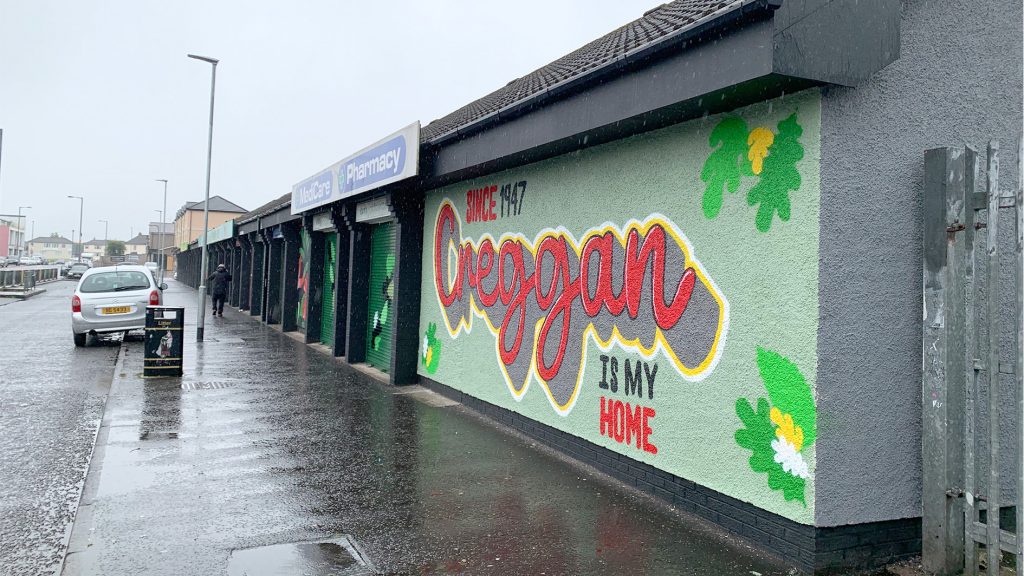
Derry City is just two miles from the border with Donegal and the Irish Republic. Immediately after the Brexit referendum talks of a return to the hard border of the past caused serious fear and panic in the city and across Ireland.
Built on hills at the mouth of the Foyle, both the city church spires and mountains of Donegal can be seen from Raymond’s house on the east side of the river. So too can they be seen from the top of Creggan Hill in the main cemetery overlooking the walled city below. Darragh and Raymond head there after dinner to visit their deceased loved ones.
Raymond’s anecdotes of life during the conflict are in stark contrast to the upbringing that Darragh experienced. Born in 1998, the year that the Troubles ceased, Darragh’s generation is affectionately known as ‘Peace Babies’.
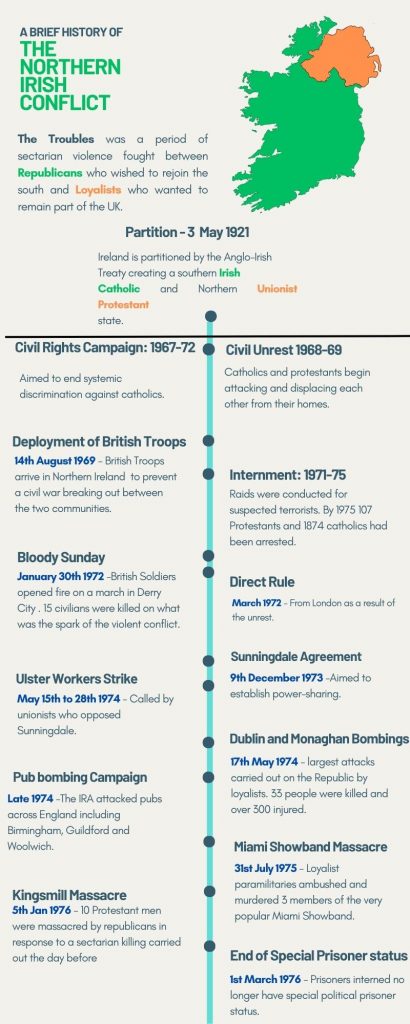
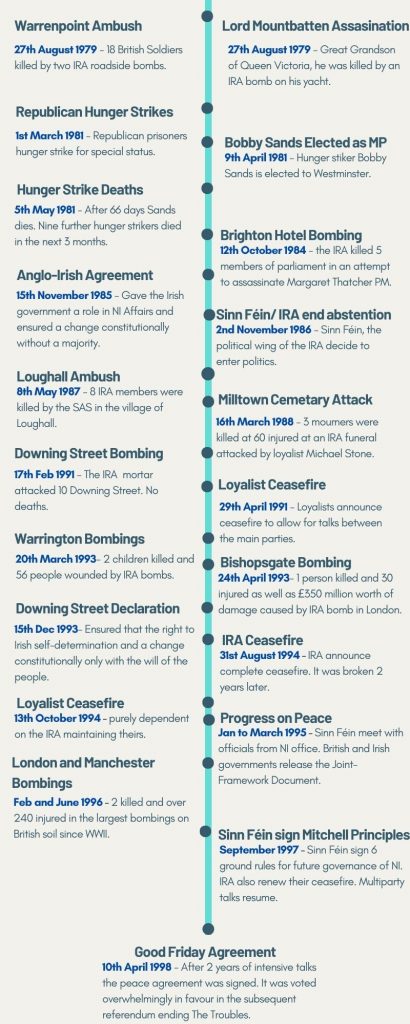
He did not have the constant fear of dodging bullets or police harassment. Nor did he live in madness inducing worry of the no-warning car bombs or the bodies peeled off the streets that were commonplace in the Northern Ireland of Raymond’s time.
Yet this fragile peace has been hurled into uncertainty since the Brexit vote in 2016. Splitting his time between the North and South, Darragh has seen a sharp change since.
“I think that Brexit has set in motion something that can’t be undone,” he said. “They knowingly walked into a black abyss and it’s caused a shift here in the North, it’s very noticeable, you can feel it and yes I do worry about the future.”
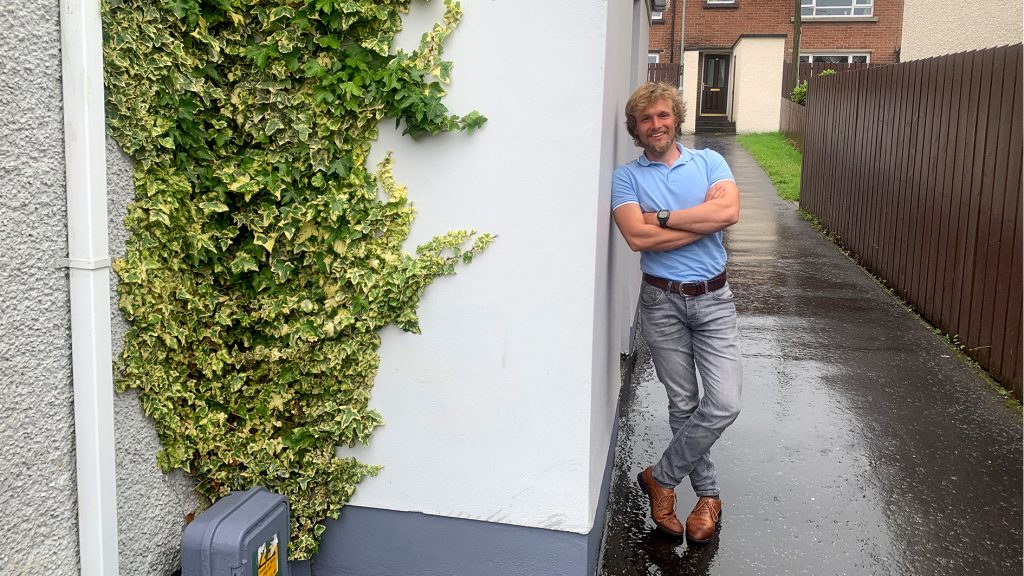
“There is a real and palpable tension that just wasn’t there before particularly in the loyalist areas, there’s more flags, more anger and there’s overall just a more serious tone to everything,” he said. “All you have to do is look at the news about the loyalist feuds or go for a drive through an estate, it’s not hard to see.”
As they make their way to the cemetery they switch on the radio. Per usual talk of Brexit and the border dominates the airwaves. This time it’s the voice of former Ulster Unionist Party (UUP) leader Mike Nesbitt discussing loyalist fears about the protocol. He is also a member of the Stormont executive for Darragh’s home constituency of Ards.
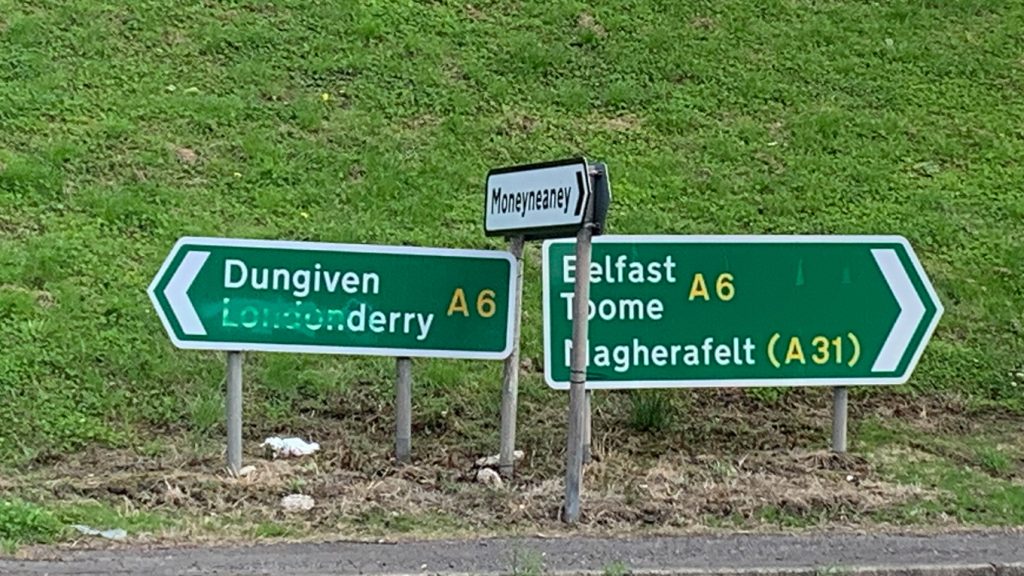
Mike is speaking from his office in the town of Newtownards, halfway between Portaferry and Belfast. At the moment his role as an elected representative is redundant as a result of the collapsed power-sharing government.
Entering Newtownards you’re confronted with a barrage of Union Jacks and bunting hanging from the lampposts. The kerbstones are painted red, white, and blue. If it wasn’t obvious this is loyalist territory.
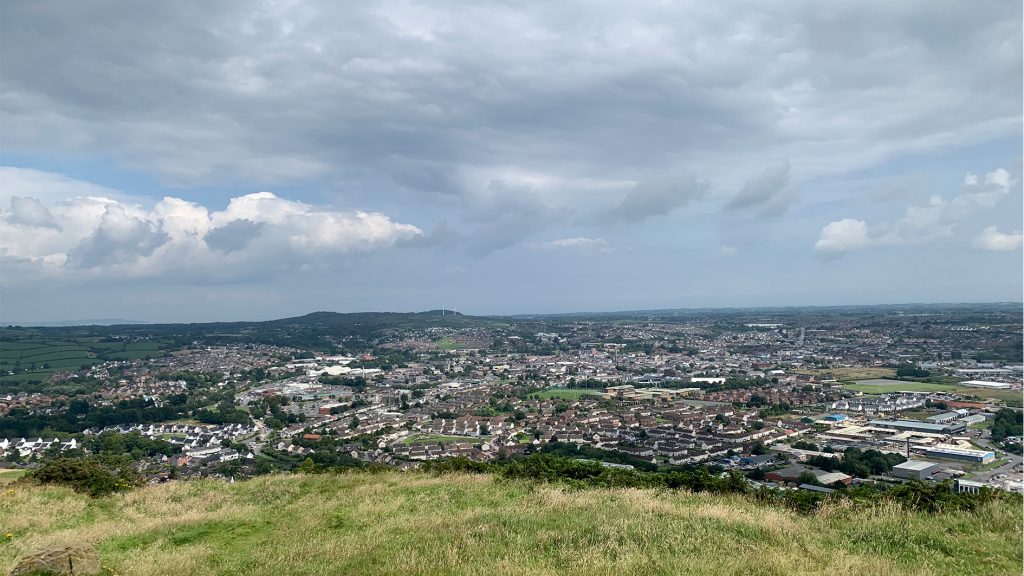
More recently is the addition of banners and placards in defiance of the Irish Sea border, giving an insight into the fury within the loyalist community. That anger has spilled over in recent months with Newtownards and the wider peninsula erupting in loyalist violence, the people who cause Darragh to fear for the future.
The Democratic Unionist Party (DUP), the largest pro-union party in the North campaigned in favour of Brexit, unlike the UUP. They subsequently collapsed the government until the sea border was removed.
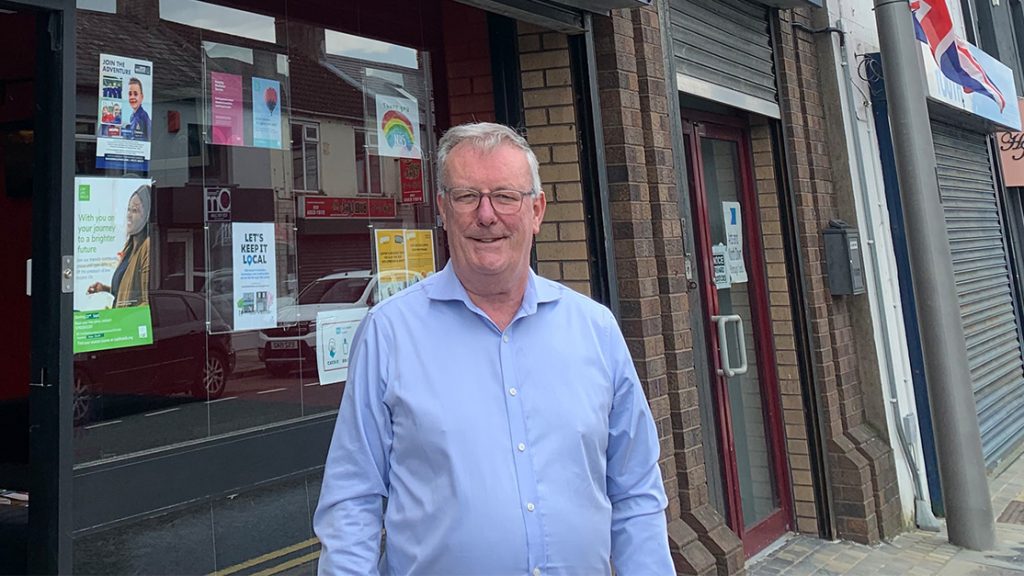
“To put it frankly the loyalist community have absolutely hated the Irish Protocol and its redraft of the Windsor Framework has not allayed any of their fears,” Mike says across the airwaves. “Many loyalists also feel that the direction of travel is in favour of the Irish nationalists and that the protocol itself as a subjugation of the act of Union.”
An equalling of demographics and the Irish republicans, Sinn Féin likely to become the largest political party North and South of the border amplifies the uncertainty in post-Brexit Northern Ireland. Within the Good Friday Agreement is the possibility of a border poll being called on its constitutional question once demographics reflect its demand.
Paired with the impact of the Irish Sea border and the possibility of joint authority rule between Dublin and London if power-sharing cannot be restored, many unionists feel as if the time for this to be put to the people is fast approaching.
A moderate unionist who believes that the priority of politicians in the north should be the betterment of everyone’s welfare, Mike doesn’t concern himself with the orange and green politics of division. However, when questioned on the radio about this he had some reservations.
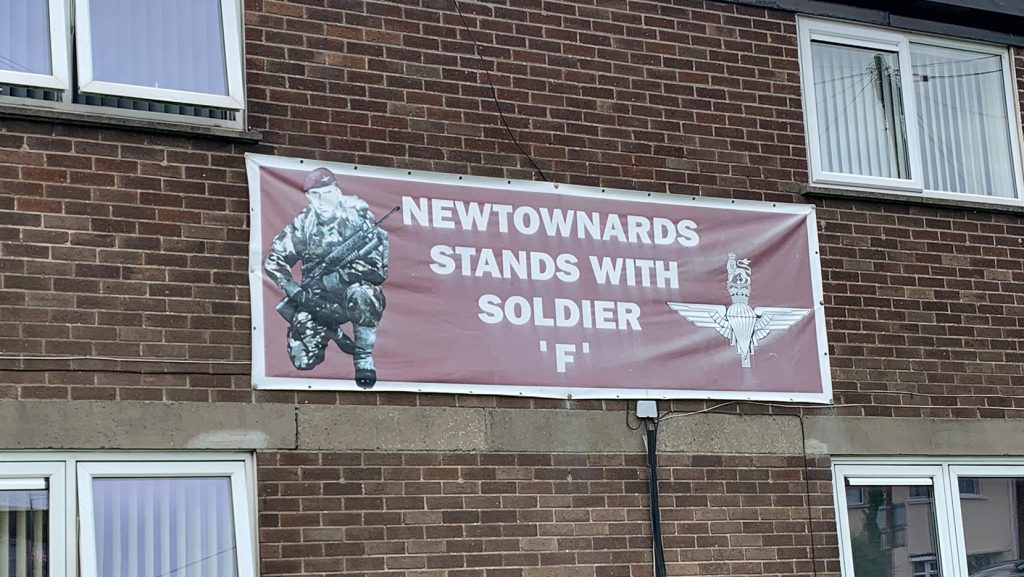
“I’ve heard loyalist spokespeople say that they will accept the outcome because they are democrats but I would say that there would be danger in the run-up to a border poll where the use of force could be used to sway people’s vote,” said Mike. “I could share a concern that a very small number of loyalists might be committed to violence, probably more likely in the republic.”
The loyalist threat is not to be ignored. In late 2022 a letter shared by the Loyalist Communities Council (LCC), an umbrella organisation representing the views of several paramilitaries, carried a clear warning to the Irish Government that ministers should not visit or interfere with Northern Ireland.
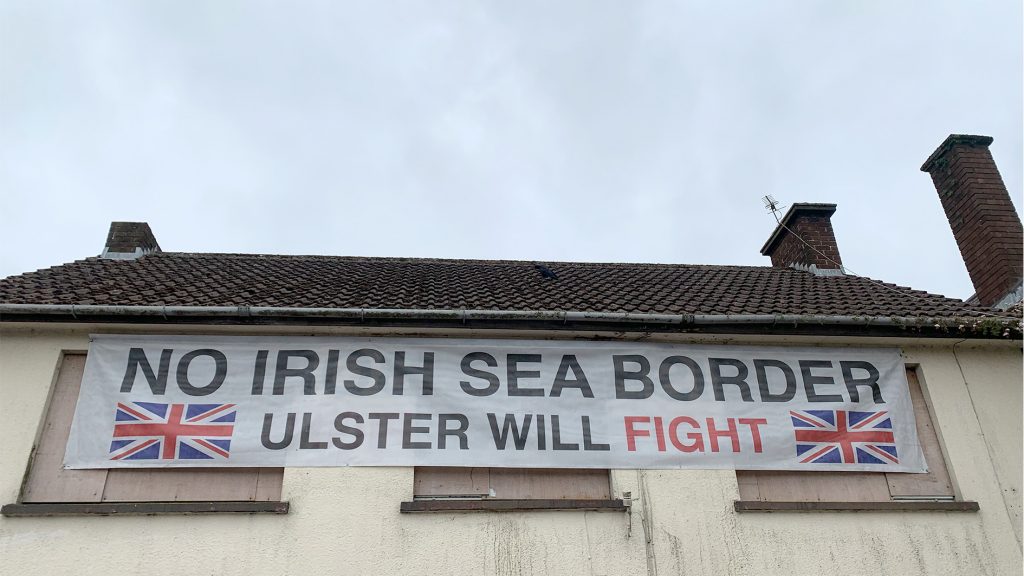
The threat from Irish republicans is also severe and has been for quite some time. In February 2022 a Detective Chief Inspector was ambushed and left fighting for his life in an attack claimed by the New Irish Republican Army (IRA). They are a group of dissident republicans who wish to keep the flame of violent republicanism alive.
This is the same group that threatened attacks on border infrastructure in the event of it returning. So severe was that threat, it caused the Irish leader Leo Varadkar to plead for support amongst his European counterparts to ensure a hard border would not return.
These republicans have been gathering support, particularly in Derry in recent years. A stronghold is that of the Creggan, just uphill from the city cemetery where Darragh and Raymond ponder the thoughts of Mr. Nesbitt.
They leave their car and enter the graveyard. Immediately they are surrounded by a sea of white masts, each mounted with an Irish Tricolour. It paints a sad picture of Derry’s tragic history with each one representing a life given to the Republican cause.
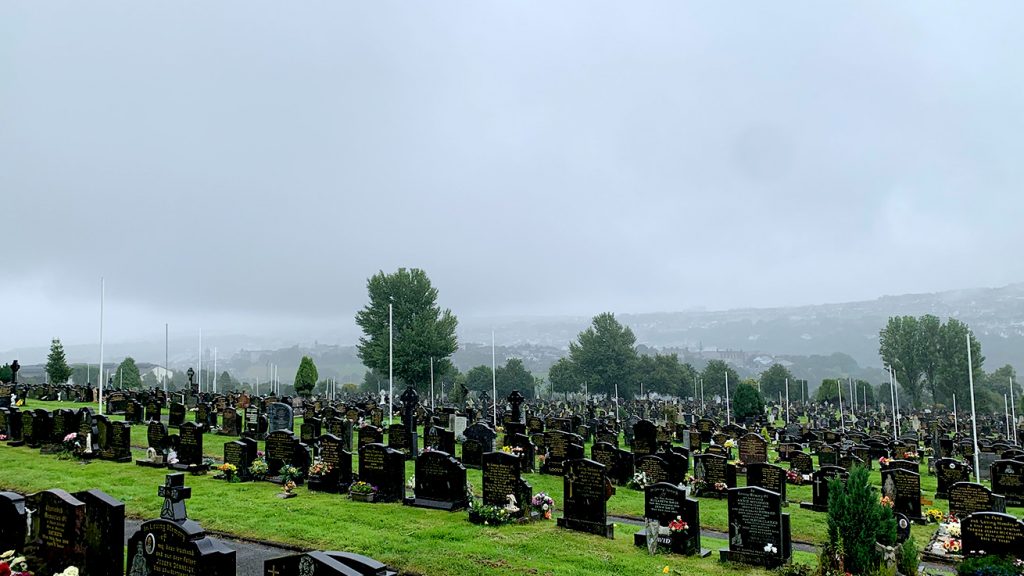
For both, Irish unity has always been a distant hope but it had been parked by the Good Friday Agreement in 1998. Now Brexit has reintroduced that constitutional question. Walking through the republican plot of Creggan cemetery their thoughts can hardly escape that topic.
“I used to be adamant about a united Ireland and I’d still love to see it but not at any cost,” says Darragh. “We need to build more bridges before we unify because if there was a successful referendum in the morning I could see loyalist violence coming along with it.”
“I don’t know exactly what that violence would look like but there’s no way that they would accept it without a fight,” he said.
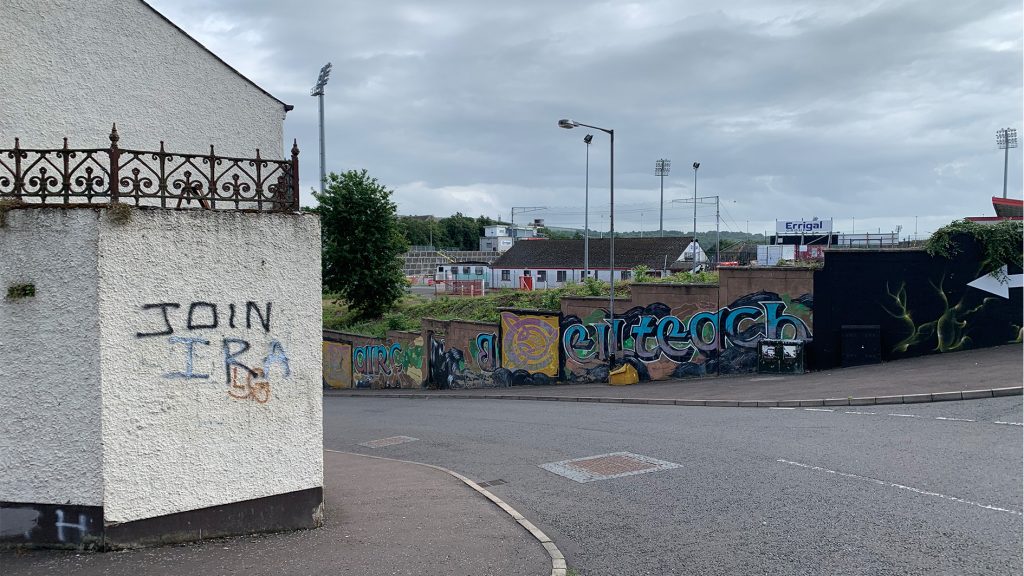
Raymond chuckles and says,“ a united Ireland is on the cards and it’s the loyalists who are going to achieve it, they’ve done more for the cause of Irish unity in the past few years than the IRA ever did.”
In the warm tranquillity of the graveyard, the summer showers blow in from Lough Foyle to the northeast engulfing the city and hills surrounding it in a cascade of heavy rain. Below them is the catholic Bogside and the walled city built to protect Scottish settlers of the Ulster plantation. Flying high behind them are the union Jacks of the loyalist Fountain estate.
“There will never be peace on this island,” says Raymond to Darragh. “Just look around, that hatred will never go away.”
On the way back home they drive past Celtic Park, the city’s Gaelic Football Stadium. Outside the graffitied scribbles of JOIN IRA tatter the walls. On the lamppost those last three letters are painted on wooden signs in green white and orange, still hanging as they did during the Troubles. A ghost of the past highlighting that this conflict is never far away.
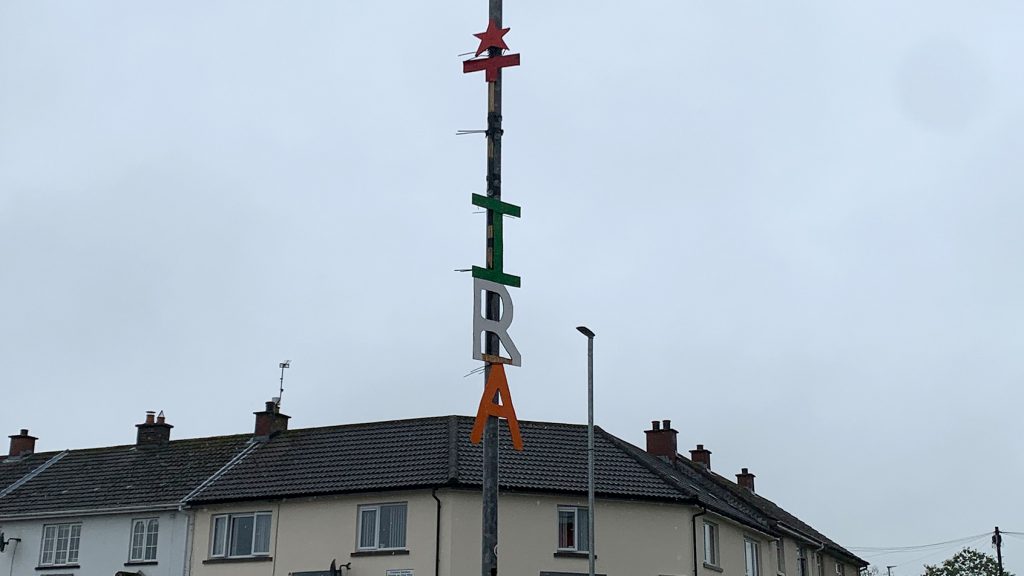
It was here that not long after Bloody Sunday Raymond encountered a young British soldier in need of his help. He tells Darragh an anecdote that shows the mentality and animosity towards the other side that was harboured by those who lived through Troubles.
“I remember a British soldier sat there on his backside with blood running out of his stomach, the boy was dying and he asked me for a drink of water, I just walked on and left him there,” he said. “I feel guilty about it now but that was the hatred we all felt to those men.”
They turn back on the radio. Still, the talk of Brexit, the collapsed government, and the border dispute plague the airways Darragh scoffs and turns to Raymond.
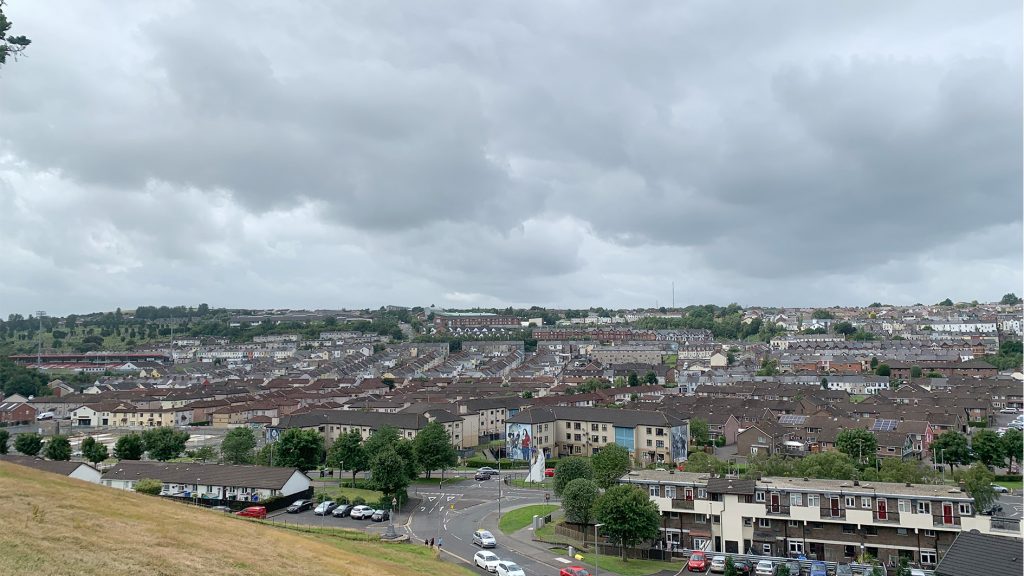
“How can they expect ordinary people like you and me to understand all of this jargon, they don’t even understand it in Stormont because the politicians won’t even talk to each other,” he says.
On the radio, another voice of unionism comes on. It’s Sammy Wilson from the DUP. He argues about how the protocol has subjugated Northern Ireland’s place within the EU and how the Irish government is the root cause of it for threatening a return to republican violence.
“Leo Varadkar should mind his own business, stay in Dublin and keep out of Northern Ireland’s affairs,” says Sammy. “If he wants to see our executive back up and running he should remove his demands for a legal and economic barrier running down the Irish Sea.”
It was Sammy’s party that campaigned in favour of a hard Brexit and subsequently collapsed the executive in protest of the Irish Sea border.
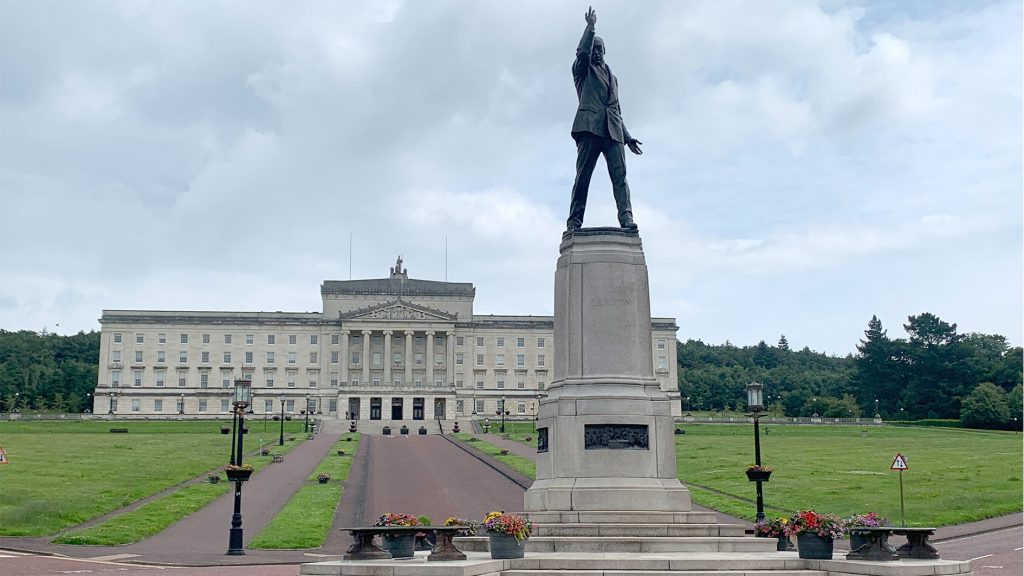
Sammy is speaking on this radio show from sunny Spain whilst the Stormont government remains empty and the ordinary people of Northern Ireland are left to struggle amidst the ongoing cost of living crisis.
“Do the DUP not understand that the voices of unionism are not loud enough to be heard by the people in London,” said Darragh in frustration. “The Windsor Framework is an international agreement between two huge states, loyalists have been forced into this and I don’t understand how they think they can reverse it.”
The same soundwaves can be heard in Róisín Murtagh’s car radio as she rushes to get her son Rory down to train in the local Gaelic football club. The team is managed by club legend Oisín McConville and you would dare not be late.
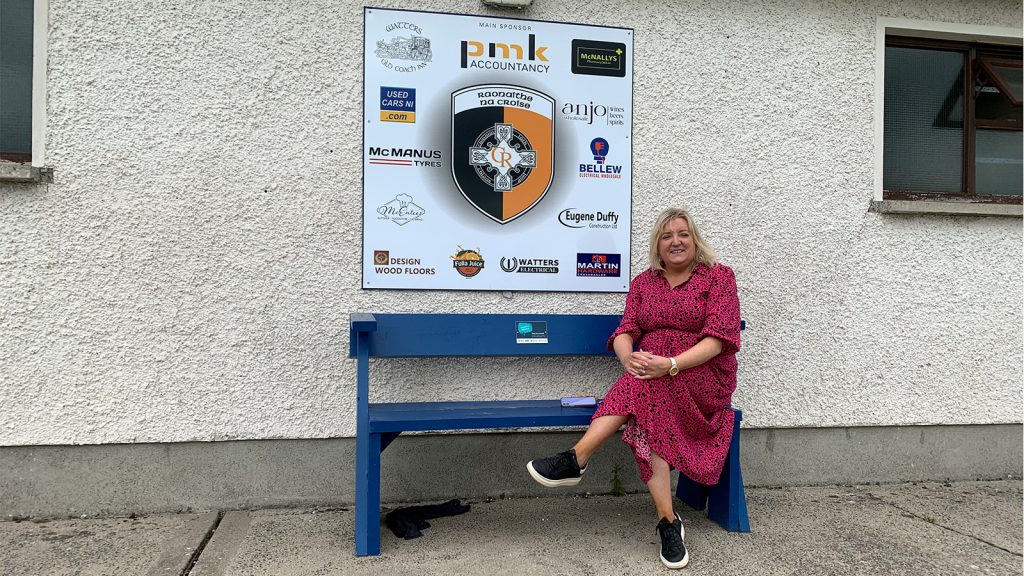
They hail from the infamous border town of Crossmaglen, one of IRA’s strongholds where over 170 members of the British security forces were killed during the conflict. Here the fears and frustrations expressed by Darragh and Raymond are mirrored almost identically.
Like Derry, Crossmaglen is a nationalist town just a couple of miles from the border. They suffered similar fates during the Troubles coming under strict army occupation for its duration with the locals subjected to daily intimidation by the security forces.
The light in the darkness of that time was local the Gaelic football club, one of the most respected and feared in Ireland. Oisín and Róisín grew up just down the street from it. Today the imposing British army fortress like the IRA streetlight signs in Derry, remains almost unchanged with real fears of a return to the bleakness amongst the locals.
“As soon as the Brexit vote came through our immediate fear was that we were going to go back to the Troubles,” said Róisín. “Everyone was wondering how it was going to work out and we all wondered what it would mean for the border because there’s no way that we’re going to go back over the Good Friday Agreement.”
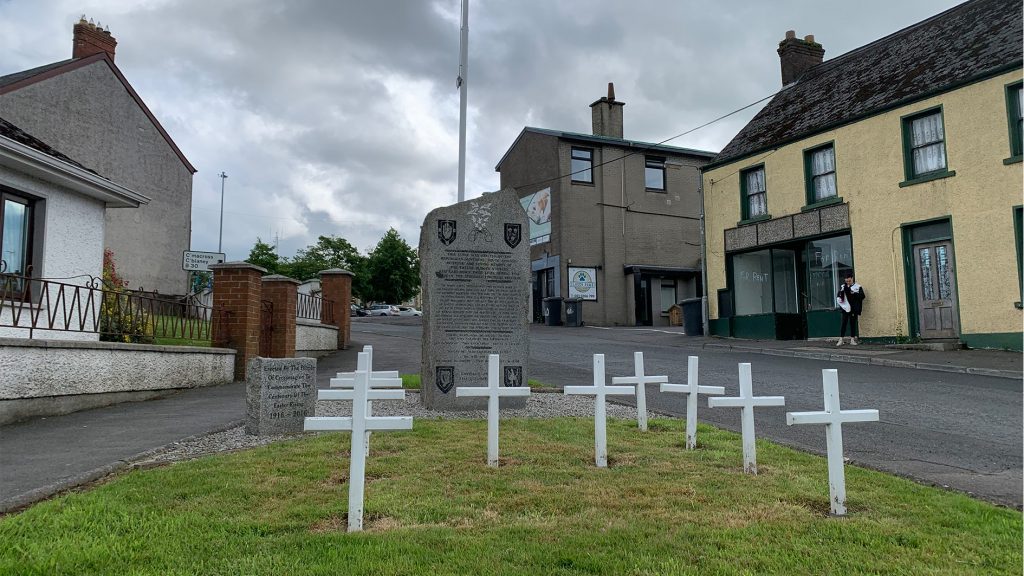
The past is inescapable in Crossmaglen such was the fog of sadness and tragedy that engulfed the area during the conflict. The fighting was so intense the town and the borderlands of South Armagh became simply known as ‘Bandit Country’.
In the town church, the place where many local lives sacrificed for the republican cause were mourned, that heavy weight of sadness and history can be felt in its cold silent emptiness.
Oisín grew up amidst this chaos, just down the street from the club in the shadow of the army barracks. For him, Gaelic football was his saviour. He went on to become one of the greatest Gaelic football players of the modern era and was a key part of Crossmaglen’s on-field success in which they have won seven all-Irelands since 1997.
Now an underage coach with the club he looks on and he thinks back to his youth and how different it was for him growing up during the Troubles. The helicopters whirling overhead, often landing on the playing pitch, the constant fear of encountering a soldier on your way to training, and the nonstop dodging of bullets every time you left the house.
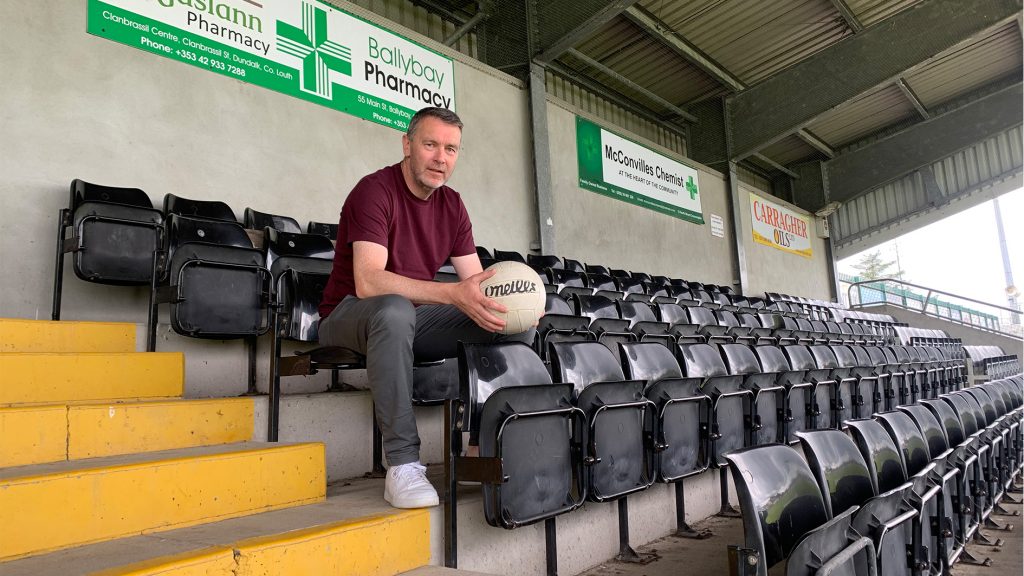
“I remember back then, we just got on with things back then because we didn’t know any different,” he said to Róisín. “We’ve worked so hard to improve things here so that the kids today can be whoever they want to be, to go back to where we were would be unthinkable.”
Róisín also grew up during the Troubles. She saw the town go from war to peace to its rebirth through Gaelic football.
“I was born at the height of the troubles in 1973 and I knew no different either but when I look back at some of the things that we had to go through I simply wouldn’t be able to cope if it came back.”
Following their first of seven all-Ireland victories in 1997, the local publican Paddy Short summed up what it meant for this town plagued by the conflict that had engulfed it. Such was the lift that it gave a town persecuted by its surroundings, he believed changed the very foundation of its notoriety.
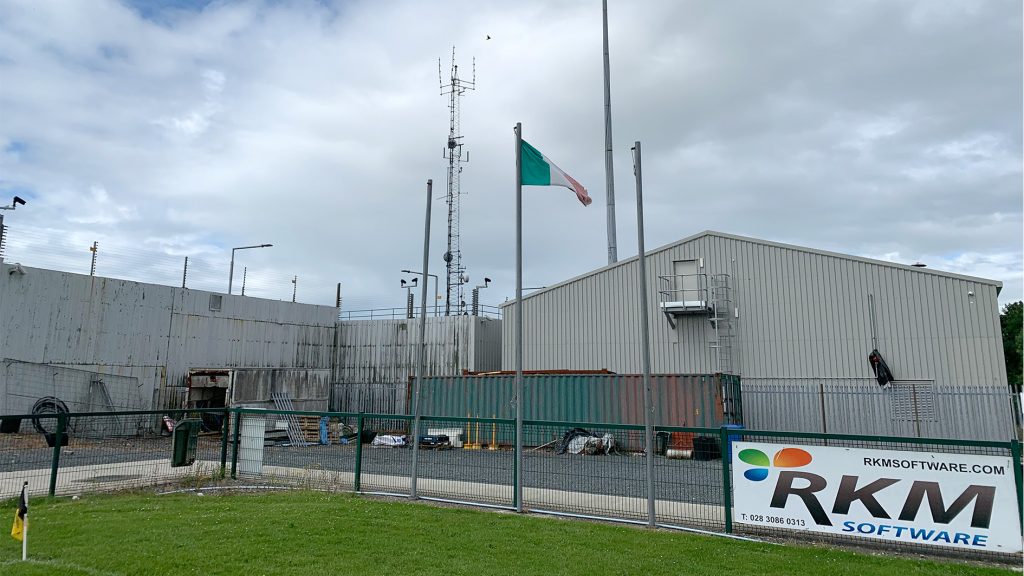
“At least we won’t be known as bandit country anymore, we’ll be known as a great football team,” he said.
This spirit of wanting to rid themselves of their trouble is part of what drove Crossmaglen to their unparalleled on-field success. It is also what has driven Oisín to keep that work going so that the issues of the past remain there. The bleakness of their childhood is something that they are determined to not ever happen again. Something that Brexit has threatened to undo.
The Irish protocol and its redraft of the Windsor framework has reaffirmed the Good Friday Agreement ensuring that the border will not return to the island of Ireland. Yet despite this reassurance it has not allayed the fears of trouble erupting once again in the North particularly along the border in places like Crossmaglen and Derry.
Both Róisín and Oisín worry for the future and what the ongoing issues surrounding it will mean for their young children who have grown up in a different Northern Ireland entirely.
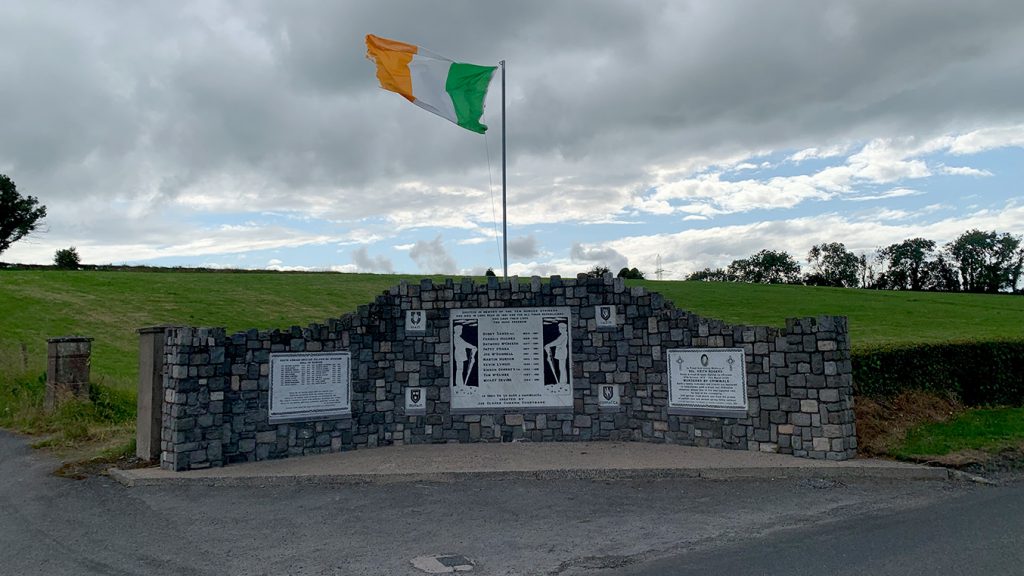
“The border issue is not resolved yet and I do fear that it could cause problems in the future,” said Róisín to Oisín. “I don’t think that the staunch loyalist is ever going to accept what we Catholic’s would want because some people just don’t want to move on.”
“We try our best here to move on from the past but you can only get so far,” she said. “We’re hoping that with the work we do here in the football club, that younger people don’t replicate the attitudes of the past but some people just don’t want to move on.
“Unfortunately between everything that’s happened here during the Troubles and now with Brexit and this border issue it getting harder and harder to do so.”
